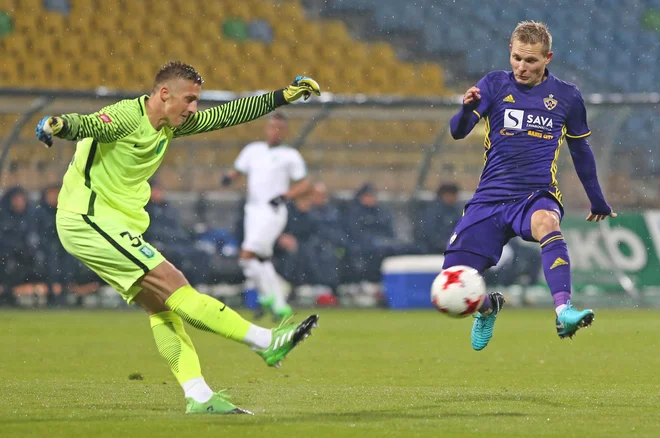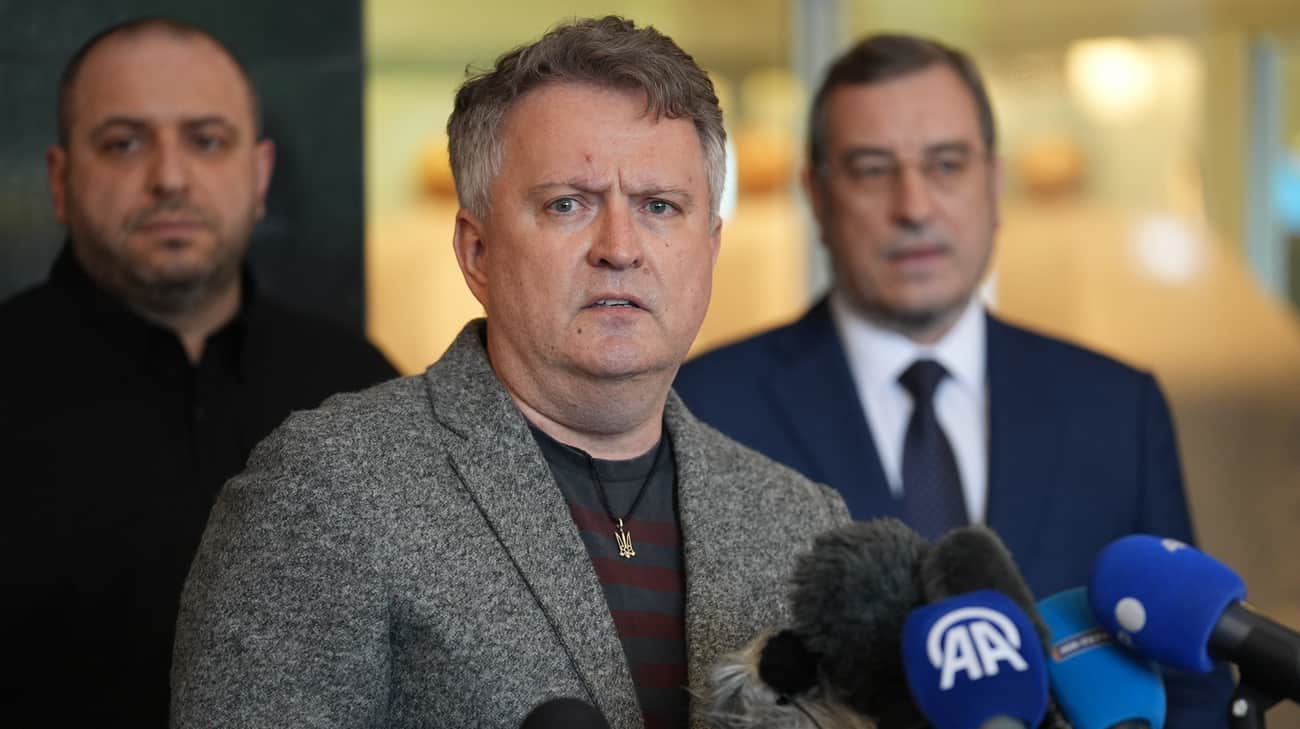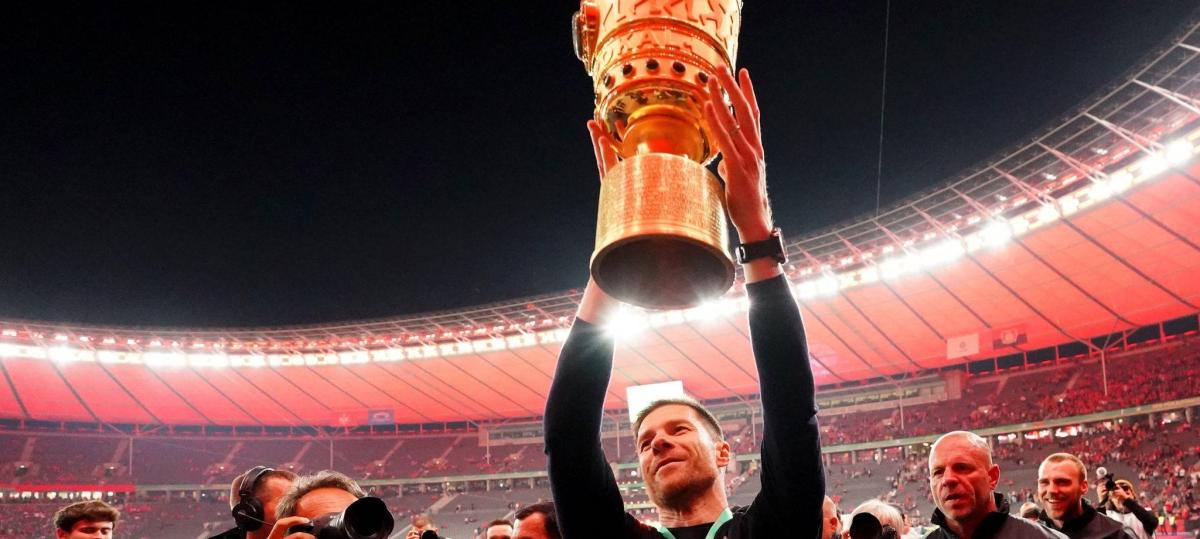Olga Megorskaya, founder Toloka: ‘AI cannot do without people. And it will stay that way ‘
:format(webp)/s3/static.nrc.nl/wp-content/uploads/2025/03/28141841/data129942131-cbe9b8.jpg)
Now that computers are getting smarter, something remarkable is happening, says Olga Megorskaya (38). Artificial intelligence is taking over more and more tasks of people, but at the same time not without them. « AI leans heavily on human intelligence, » says the founder of the Amsterdam AI company Toloka. « Now more than ever. And it will stay that way. »
The 38-year-old Russian tech entrepreneur is in a space of the trendy Flexplekkantoor Tribes on the Amsterdam Zuidas, where Toloka rents part of the office. In the midst of a decor full of plants, wood and feathers-in Tribes offices a ‘tribute’ is given to indigenous tribes, in this case the Secoya tribe from Peru and Ecuador-techies stare at their Apple laptops.
Toloka is an online platform where millions of freelancers all over the world train AI systems for a fee. For example, by writing texts for chatbots, so that the robots learn to look more human. These ‘AI Tutors’ are people who ‘teach’ AI systems in how people communicate.
This month, the Megorskaya company raised 72 million dollars (63 million euros) from a group of investors, including Amazon founder Jeff Bezos. The company counts the largest tech companies in the world as its clientele: Amazon, Microsoft and Anthropic. It makes Toloka (100 to 150 employees) one of the most successful AI startups in the Netherlands.
We left the Russian market and broke all ties
Toloka was founded in 2014 as part of the Russian tech giant Yandex. After the outbreak of the war in Ukraine, that group fell apart. Some of the Yandex employees, including Megorskaya, left for the Netherlands. There they continue their work under the name Nebius, a billion -dollar company that is listed on the American stock exchange. According to Megorskaya, Toloka, subsidiary of Nebius, has since completely detached itself from Russia.
Read also
Flight Russians are building a European alternative to American AI. The result: TechStart-Up Nebius
Toloka focuses on one of the biggest challenges in the development of AI systems: a growing lack of data. The AI systems under chatbots such as chatgpt are trained with all the text ever appeared on the internet. But to keep improving, more and especially more specific information is needed. To this end, Toloka hires human experts who solve calculations at home behind their computer, write programming code or help recognize cultural symbols on photos.
Ghost Workers
Olga Megorskaya knows exactly what kind of work does her ‘Tolokers’ – as the company calls its labor. When she had a serious accident in St. Petersburg as an 18-year-old econometric student and was damaged her backbone, she had to look for work she could do at home. That’s how she ended up at Yandex, where she started labeling data. That work eventually grew into her own company, which she leads from the head office in Amsterdam. Megorskaya lives with her family – two daughters, dog, cat and man – in Amstelveen.
If you are stuck and feel useless, I think it is super value to give people the opportunity to share their expertise with society
Megorskaya, who walks with a stick, would rather not lose too much about her accident, she says. « I don’t find it that relevant. » She emphasizes that the accident inspired her to do something for people in a hopeless position, and yet looking for a way to make money. « If you are stuck and you feel useless, I think it is super value to give people the opportunity to share their expertise with society. »
There is much discussion about the appreciation of the work of these ‘data labelers’. The rise of AI goes together with a new kind of employees: millions of people who, often in low -wage countries, perform microtaaaakes all day from home. This ‘Ghost Workersor ‘or’Micro Workers‘often get poorly paid and have no rights.
Tolokers leave on the social medium Reddit hear They complain that they hardly live on the few cents that they deserve per task – think of recognizing lampposts on photos. At the same time there are also examples From promoted scientists who earn thousands of dollars with training AI models. Because as AI gets smarter, there is more and more need for people with a lot of knowledge about very specific topics to further retrieve those models.
What can you earn at Toloko as an AI trainer?
Megorskaya: « That differs, depending on how much time you want to put in and your expertise. That can vary from a few dollars a month to a few thousand dollars. » (according to a survey From Toloka itself, a trainer earned an average of $ 4,000 a year in 2022.
The problem of this Ghost Workers is often that they have no rights. Nobody have to speak with. And can be fired at any time. How do you deal with that?
« We put a lot of time and effort into communication. By telling well when people perform well – and when less. That works two sides. It ensures that our people feel good and get more opportunities. And it leads to a higher quality of their work. »
Research platform Follow the Money Last year published a major research article about Toloka. Ntechlab and Tevian, two Russian companies in face recognition software, turned out to be used Toloka. This software was used in, among other things, the metro in Moscow to identify dissidents. The ‘Tolokers’ contributed, without being aware of it, to improve this software.
According to Toloka, these work were carried out when the company was still part of Yandex. Now that the company operates from Amsterdam, this is no longer the case, Toloka said at the time in response to the article.
For Megorskaya it is a difficult subject, it appears like NRC asks about it. « We have already given all the answers. I don’t want to keep repeating them, but I prefer to focus on the future, » she says.
For clarity: you no longer have any bond with Russia?
« There is zero connection. We have left the Russian market and broke all ties. We adhere to all European and American regulations, also in the field of sanctions. (Toloka’s parent company Nebius has Independent investigation Having carried out, which guarantees that.) We have nothing to hide, but now prefer to look ahead. ”
The ‘Ghost Workersor ‘or’Micro Workers‘often get poorly paid and have no rights
That future looks positive for Toloka. With Jeff Bezos’s money, Megorskaya wants to hire new employees and expand the number of experts. Because chatbots may get better and better, there are still plenty of domains where AI still has a lot to learn. Those possibilities are endless, Megorskaya emphasizes.
AI is already very good in having conversations and generating images. What will be the next step that we are not yet seeing?
« What we ask for AI is still quite simple. The answer also follows quickly. I foresee a future where we ask ai something that is so complex, that it might take hours, or days before an answer comes. »
Like?
« Suppose you ask AI to write a program that keeps an eye on the news about your company every minute of the day. And immediately checks whether that news is correct on the basis of all the documents that are available about your company. Something will be possible, next year. At least if we use enough human experts to train AI systems how to do that.”
/s3/static.nrc.nl/images/gn4/stripped/data132594615-7477e5.jpg|https://images.nrc.nl/GVuhIL4Wgwk9dogxXlY_bkUQt2M=/1920x/filters:no_upscale()/s3/static.nrc.nl/images/gn4/stripped/data132594615-7477e5.jpg|https://images.nrc.nl/DQqrrpgBoWTxfMyCa1EaT7fS_8g=/5760x/filters:no_upscale()/s3/static.nrc.nl/images/gn4/stripped/data132594615-7477e5.jpg)
Photo Merlin Doomernik
AI is mainly about more and more computer power. More data centers, more chips. Does that actually make sense if there are not enough good data?
« That is the big question. To permanently improve AI systems, we mainly need more complex and better data. »
And do people stay needed for that?
« I am sure. There are always parts of our society that AI still knows enough about. Take construction. There is so much to be learned in that. To keep improving, AI needs more and deeper expertise on very specific topics. To be able to do that, human experts remain needed. I am convinced. »
Is it not a scary idea somewhere that we are mainly there to make our computer systems smarter?
« The changes are super fast, especially if you look at the recent years. And yes, we have to be careful. It is good that governments and companies think together about which boundaries we want to set to the technology. But scary, I would not call it. Rather fascinating. »

/s3/static.nrc.nl/images/gn4/stripped/data132552526-5d808c.jpg|https://images.nrc.nl/-alLGZUlhOtkfEn53PT8JsozfPM=/1920x/filters:no_upscale()/s3/static.nrc.nl/images/gn4/stripped/data132552526-5d808c.jpg|https://images.nrc.nl/RjlZVcsZe2uK0D0I7UhkvHUjtOw=/5760x/filters:no_upscale()/s3/static.nrc.nl/images/gn4/stripped/data132552526-5d808c.jpg)
/s3/static.nrc.nl/wp-content/uploads/2025/05/24222233/ANP-528532887.jpg)
/s3/static.nrc.nl/images/gn4/stripped/data132763263-65ea95.jpg|https://images.nrc.nl/75oe9WHYdeCXhr04y6lDs_HaBCw=/1920x/filters:no_upscale()/s3/static.nrc.nl/images/gn4/stripped/data132763263-65ea95.jpg|https://images.nrc.nl/4wzAuedQvp4OHER2rpzy7k56Gdo=/5760x/filters:no_upscale()/s3/static.nrc.nl/images/gn4/stripped/data132763263-65ea95.jpg)



